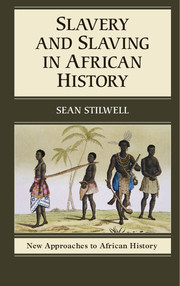3 - Slavery without States
Published online by Cambridge University Press: 05 June 2014
Summary
Introduction
A Balanta man, Mam Nambtacha, described how Balanta communities dealt with the captives they acquired in the past, and focused on the way that children might eventually be incorporated after a long period of time living within a household:
People went to distant tabancas [villages] to conduct ostemoré [a raid]. They carried away cows and other goods.... Captives could also be taken. The families could pay something and in the end could gain the liberty of the captured people. If the families could not pay, the captives stayed in the houses of their captors. For example, in the tabanca of Cumbumba, there was once an old man called Mpas Na Uale who was said to be in the subgroup Mansoanca. He had been captured in ostemoré. Since his family did not have the courage to pay a ransom and retrieve him from the tabanca of Cumbumba, Mpas Na Uale stayed there until he died. At that point he was not Balanta Mansoanca but a Balanta Nhacra. The practice of ostemoré was one of the things that led to the mixing of the Balanta with other ethnic groups.
- Type
- Chapter
- Information
- Slavery and Slaving in African History , pp. 60 - 88Publisher: Cambridge University PressPrint publication year: 2014

